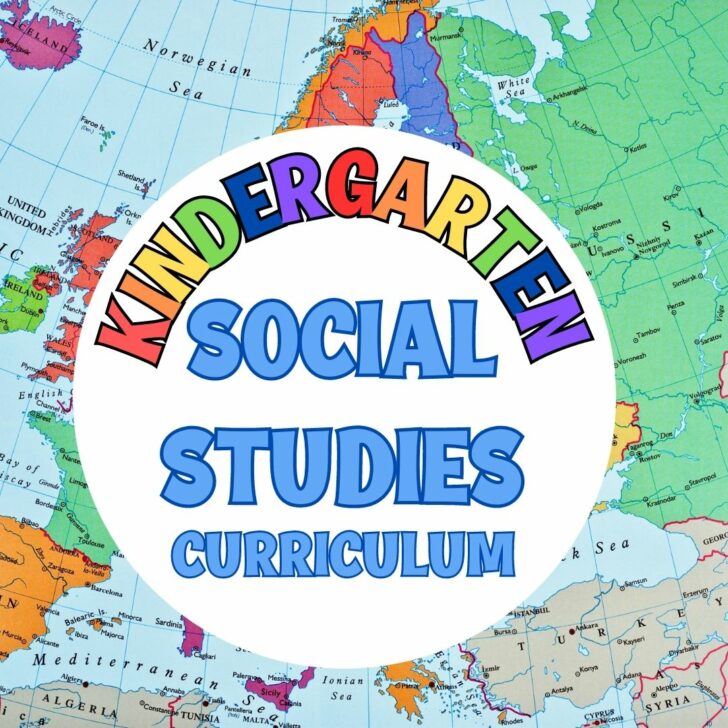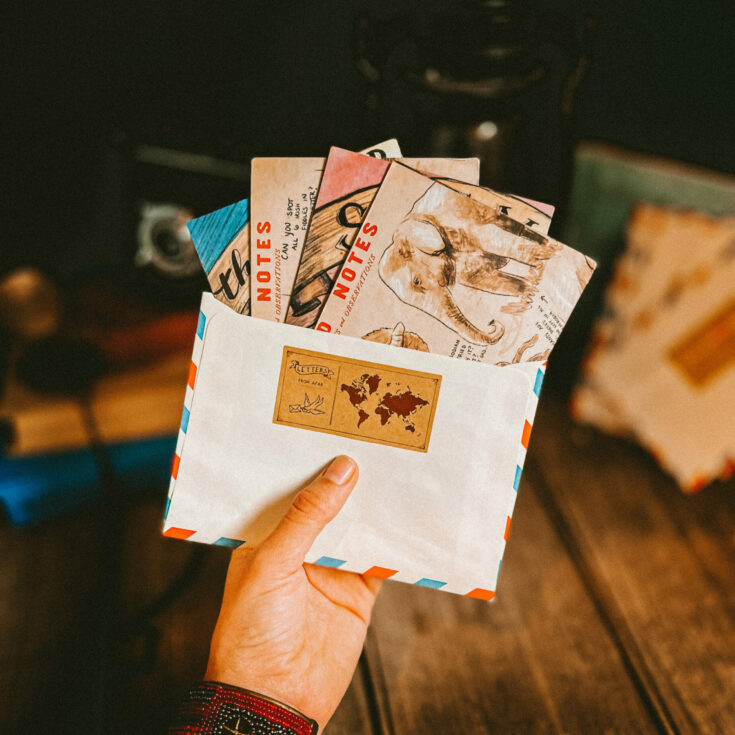In today’s interconnected world, it’s essential to cultivate social awareness and understanding from an early age. Kindergarten serves as a crucial foundation for a child’s educational journey, and incorporating a well-rounded social studies curriculum is key to fostering their development.
In this blog post, we will explore the importance of a kindergarten social studies curriculum, its key components, popular curricula for homeschooling, what to teach kindergarteners, and how to create your own curriculum for free.
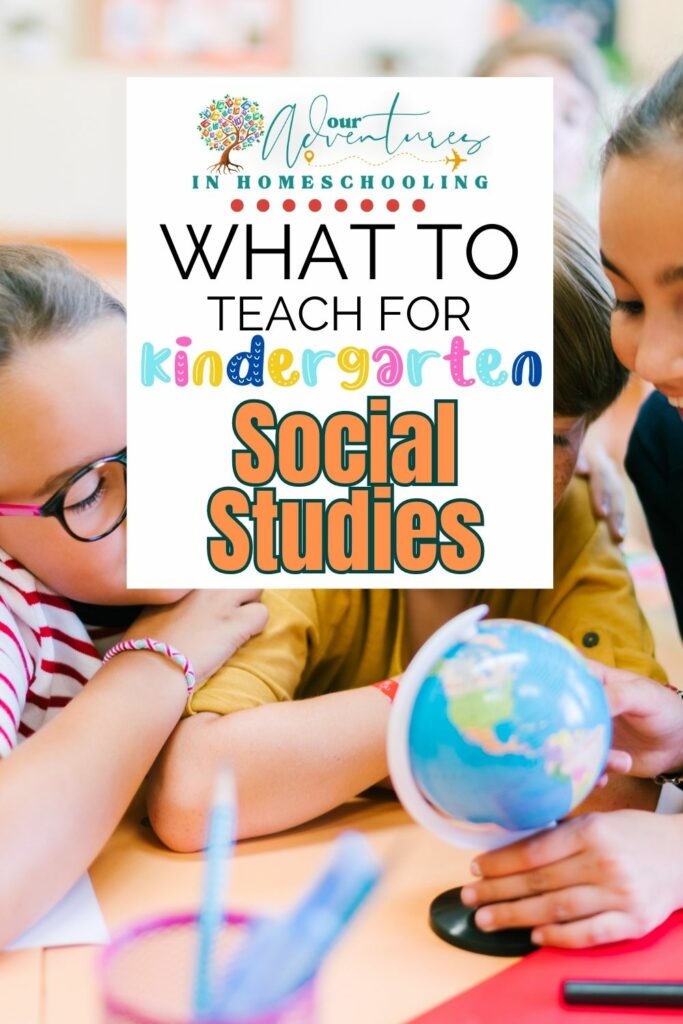



Why a Kindergarten Social Studies Curriculum is Important
Kindergarten social studies curriculum plays a vital role in a child’s education by promoting a deeper understanding of the world around them. Here are a few reasons why it’s important:
- Developing Social Skills: Social studies helps kindergarteners learn about different cultures, traditions, and customs, fostering empathy and understanding among diverse groups of people.
- Note that social skills and socialization are two different concepts. While social skills teach children how to navigate the world around them, socialization is the act of being around others. Read more about homeschool socialization and learn why it’s not something you really need to worry about.
- Enhancing Critical Thinking: By studying history, geography, and current events, children learn to think critically, analyze information, and form their own opinions.
- Cultivating Global Awareness: Kindergarten social studies introduces children to different countries, cultures, and global issues, encouraging them to become responsible global citizens.
Key Components of a Kindergarten Social Studies Curriculum
A well-designed kindergarten social studies curriculum should include the following components:
- Community and Neighborhood: Introduce children to their local community, teaching them about community helpers, places, and the roles of people in their neighborhood.
- Basic Geography: Teach kindergarteners about maps, continents, oceans, and landforms. Encourage exploration of their immediate environment and discuss similarities and differences between various regions.
- Cultures and Traditions: Explore different cultures, celebrations, holidays, and traditions from around the world. Promote cultural diversity and respect for all.
- History: Simplify historical concepts by focusing on notable figures, events, and symbols relevant to kindergarteners. Highlight key moments in their own country’s history, such as Independence Day or cultural heritage.
- Citizenship and Values: Instill values like kindness, respect, fairness, and responsibility. Teach children about their rights, responsibilities, and the importance of making positive contributions to society.
Popular Kindergarten Social Studies Curricula for Homeschooling
For homeschooling families, various pre-designed curricula cater specifically to kindergarten social studies. Here are a few popular choices:
- “My World Social Studies” by Pearson: This curriculum offers engaging lessons, interactive activities, and online resources to help children explore the world around them.
- “Social Studies for Kids” by Evan-Moor: Designed for homeschooling, this curriculum provides age-appropriate activities, worksheets, and hands-on projects to enhance learning.
- “The Good and the Beautiful” by Jenny Phillips: This curriculum combines social studies, character education, and literature, providing a well-rounded approach to kindergarten social studies.
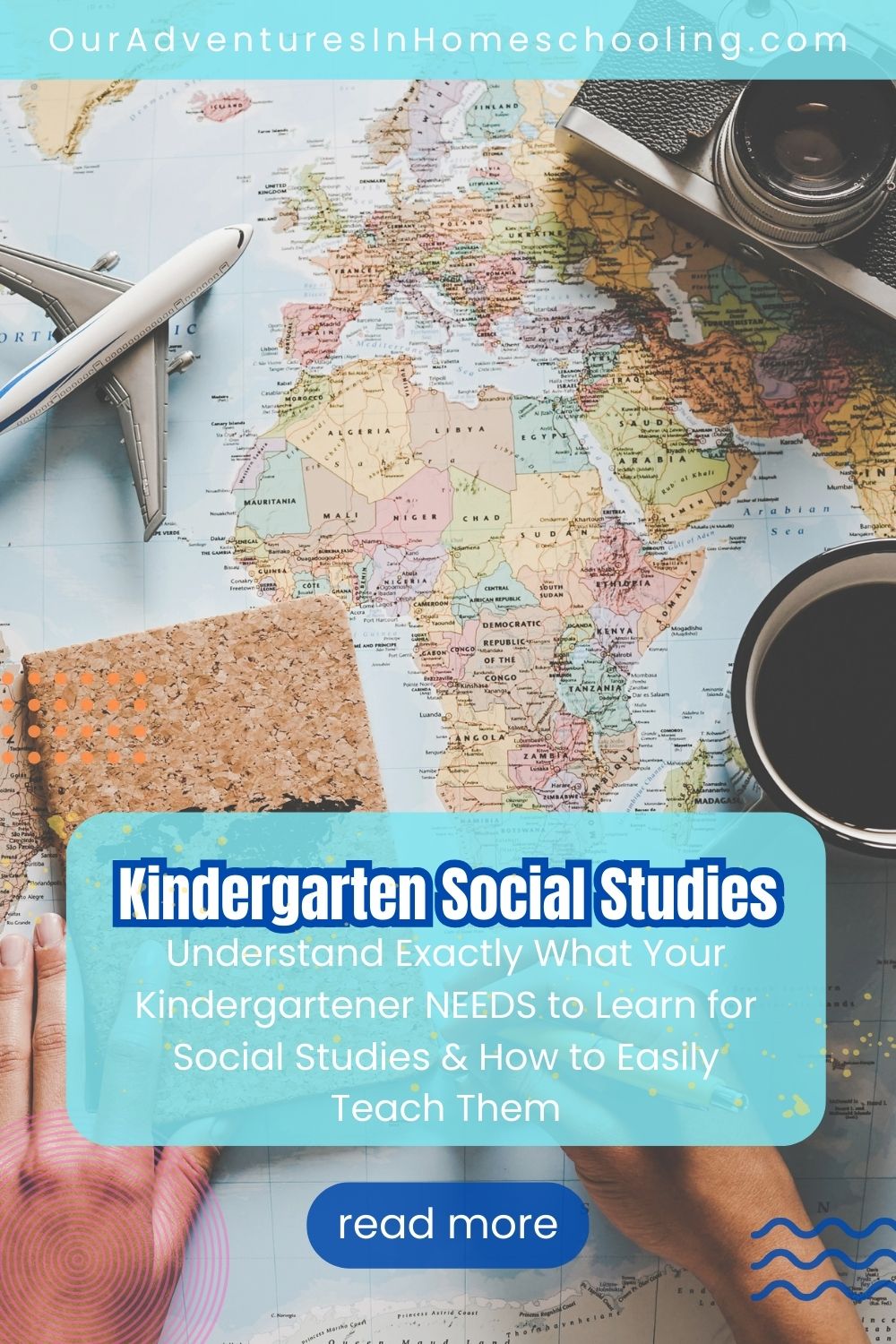



What to Teach Kindergarteners for Social Studies
When planning your kindergarten social studies curriculum, consider including the following topics:
- All About Me: Help children develop a sense of identity and understand their place in the world.
- Family and Friends: Teach about different types of families and the importance of relationships.
- Seasons and Weather: Introduce the concept of seasons, weather patterns, and how they affect daily life.
- Holidays and Traditions: Explore major holidays and traditions celebrated in different cultures, fostering multicultural understanding.
- Basic Needs: Teach children about the fundamental needs of humans, such as food, water, shelter, and clothing.
How to Create Your Own Kindergarten Social Studies Curriculum for Free
Creating your own kindergarten social studies curriculum can be a rewarding experience. Here are some steps to get started:
- Determine Learning Goals: Identify the key concepts, skills, and values you want your kindergarteners to learn.
- Utilize Free Online Resources: Numerous websites offer free lesson plans, worksheets, and activities for kindergarten social studies. Examples include PBS LearningMedia, National Geographic Kids, and Scholastic.
- Incorporate Books and Literature: Visit your local library for age-appropriate books that cover social studies topics. Stories can engage children and spark their curiosity.
- Field Trips and Community Engagement: Plan visits to local museums, cultural centers, and historical sites. Engaging with the community provides real-world experiences and hands-on learning opportunities.
- Collaborate with Other Educators: Connect with fellow homeschooling parents or teachers to share ideas, resources, and experiences.
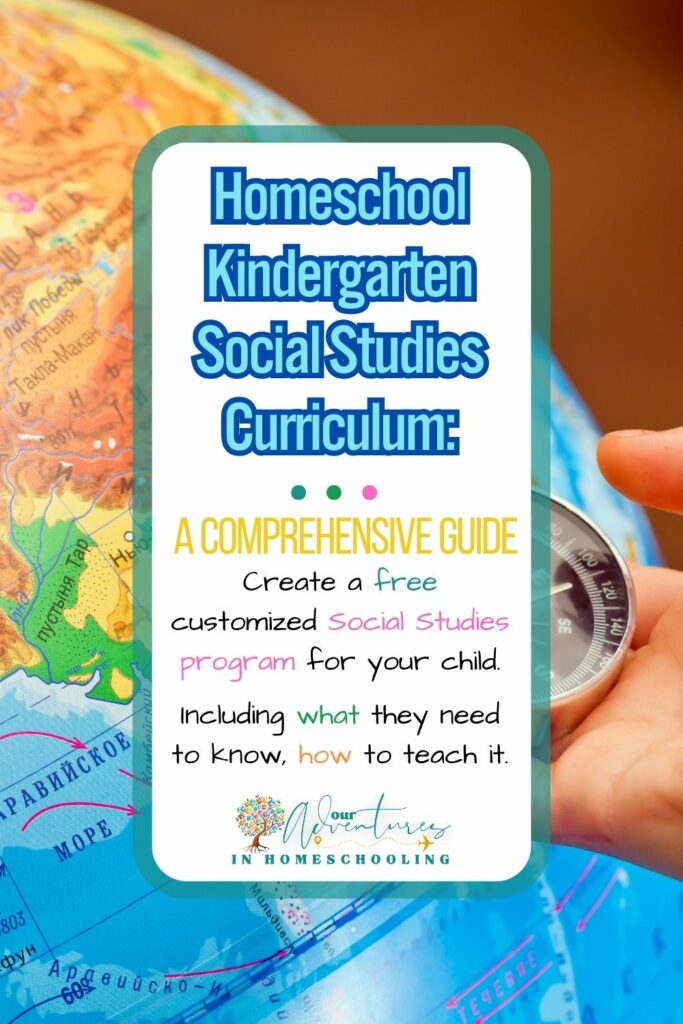



Favorite Games and Manipulatives for Teaching Kids Social Studies
Engaging children in hands-on activities and games is an effective way to make social studies come alive for kindergarteners. Here are some favorite games and manipulatives that can enhance the learning experience:
Kindergarten Social Studies Activities
Creating an interactive learning environment through hands-on activities and games is a highly effective method to bring social studies to life for kindergarteners. Let's explore a selection of favorite games and manipulatives that can enrich their educational experience:
Orboot Earth world globe takes your child on a journey around the Planet Earth. Scan the globe with the companion app to bring it alive and explore the world in different modes inside the app. Full of visual storytelling, music, animal facts and voice interactions, world quizzes, globe puzzles and challenges for ages 4 to 10.
Each month, open your mailbox to find a letter addressed to your child. Accompanied by vibrant illustrations, field notes, and a map, your monthly letter will whisk you away on a literary adventure to a land far, far away. Your child will learn about different cultures, cuisines, wildlife, landmarks, oddities, heritages, and more!
Whoever said that learning about U.S. geography had to be boring must not have read The Scrambled States of America.
Players learn the names, capitals, nicknames, shapes and positions of the states through a myriad of visual teasers, language riddles and geography challenges. After playing, you'll see that there's more to the 50 States than meets the eye!
Explore Emotions with expressions elements from smiles to frowns and everything in between.
Spark discussions and personal responses. 6 Cubes feature 36 engaging questions to build speaking and listening skills.
Match state geography cards with fact cards to collect the most matches, and use special challenge cards to steal matches from other players! Trivia on each card helps players learn more about the history and culture of the states. It’s the funniest card game this side of the Mississippi (no matter which side you are on)!
The puzzle globe is great for early fine motor skills, learning spacial awareness, and geography. The globe’s 6 puzzle pieces represent Asia, Europe, Australia, Africa, and North and South America, while a stationary bottom piece represents Antarctica.
Helps develop and learn new social skills and behaviors while playing and laughing with friends and family. Uses different game plays such as action games and sentence building games that will keep children entertained.
Fun clues help players learn to identify all 50 states, capitals, logos, dates of admission, and other state trivia.
The object of The Game Plan Game, which is suitable for families with children 4-8 years old, is for players to answer questions specifically designed to help children learn about safe and smart decision making.
Encourage a deeper understanding of your body, Use this book to teach kids about the different parts of the body.
Pretend play pet vet set has various of pet care & doctors' tools, helps kids develop empathy and learn responsibility.
The anatomy apron/DIY organs apron is a visual help for children learning the names, location, size and the shape of the main body organs.
- Map Puzzles: Use age-appropriate map puzzles to help children develop spatial awareness and understand basic geography. Puzzles can focus on continents, countries, or local maps, allowing children to explore and identify different regions.
- Community Helper Dress-Up: Provide costumes or props for children to dress up as community helpers such as firefighters, doctors, or police officers. Role-playing helps kindergarteners understand the roles and responsibilities of various community members.
- Cultural Matching Games: Create matching games using cards or pictures that represent different cultures, traditions, or landmarks. Children can match the cards to learn about various cultures and their unique features.
- Time Capsule: Encourage children to create a time capsule by gathering objects that represent their daily life, current events, and cultural aspects. This activity helps children develop a sense of historical perspective and understand how things change over time.
- Food Tasting: Introduce kindergarteners to different cuisines from around the world. Organize food tasting sessions where children can sample foods from various cultures, sparking discussions about traditions, ingredients, and customs. Check out my post on using KidStir in your homeschool.
- Flags and Symbols: Use flashcards or printed images of flags and symbols from different countries. Engage children in sorting and matching activities to help them recognize and understand the significance of national symbols.
- Community Maps: Provide children with a large sheet of paper or a whiteboard and ask them to create a map of their neighborhood or community. This activity encourages spatial thinking and helps children understand their immediate environment.
- Storytelling: Incorporate storytelling by using picture books, folktales, or historical narratives that relate to social studies topics. Reading aloud and discussing stories can captivate children’s imagination and deepen their understanding of different cultures and time periods. This is our favorite storytelling game!
Remember, games and manipulatives should be age-appropriate and aligned with the learning goals of your kindergarten social studies curriculum. These interactive activities create a dynamic and engaging learning environment, allowing kindergarteners to explore, discover, and actively participate in their social studies education.
A kindergarten social studies curriculum lays the foundation for children’s understanding of the world and their role in it.
By incorporating a comprehensive curriculum, children develop social skills, critical thinking abilities, and a global perspective. Whether you choose a pre-designed curriculum or create your own, the ultimate goal is to provide kindergarteners with a rich and engaging learning experience that prepares them for a lifetime of active citizenship.

